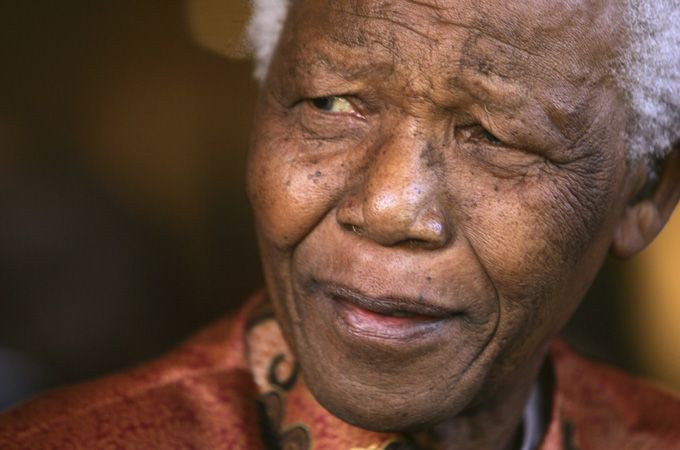Nelson Mandela Turns 95: Why Do African Leaders Live So Long?

Nelson Mandela, the anti-apartheid hero of South Africa and first black president of that country, turned 95 years old on Thursday in a hospital in Pretoria, where he has been languishing for more than a month in critical condition. It is interesting to note, however, that Mandela has already lived more than four decades longer than his fellow countrymen. According to the World Bank, the average life expectancy in South Africa was 52.6 years as of 2011 (meaning, based on these averages, Mandela should have expired in 1971, when he was still imprisoned on Robben Island).
Even more extraordinary, life expectancy rates in South Africa have been dropping, largely due to the corrosive effects of the HIV-AIDS plague that continues to ravage the country. According to the South African Institute of Race Relations, the average life expectancy in the nation was 62 years in 1990 (just prior to the fall of apartheid). Between 1990 and 2007, South Africa was one of only six nations where life expectancy rates declined, with only Zimbabwe exhibiting a sharper fall). In most regions of South Africa, there is a direct correlation between falling life expectancy averages and HIV infection.
However, Mandela is hardly the only black African leader who is long in the tooth. Robert Mugabe, who has ruled Zimbabwe since 1980, is now 89 years old and shows no signs of willing to relinquish his power. (The average Zimbabwean does not live past the age of 51, although this figure has actually been climbing higher since 2006, according to the World Health Organization). Mandela and Mugabe are only the most famous of current and former African bosses who have enjoyed (or continue to enjoy) long lives.
Milton Obote, the former prime minister of Uganda, died in 2005 at the age of 81; Tanzania’s Julius Nyerere lived till he was 77; Zambia’s former president, Kenneth Kaunda, is still alive at 89; Kenya’s legendary independence hero Jomo Kenyatta died in 1978 at the ripe old age of 85; the former leader of Malawi, Dr. Kamuzu Banda, passed away at 91 in 1997; and the long-running president of Cameroon, Paul Biya, is still in power at 80.
Of course, this phenomenon is also seen in North Africa – former Egyptian President Hosni Mubarak is now 85; the current president of Algeria, Abdelaziz Bouteflika, is 76; while Zine El Abidine Ben Ali was 75 when he was overthrown. (However, one must keep in mind that life expectancy rates are much higher in North Africa than in the south – 73 in Egypt, 75 in Tunisia and 73 in Algeria.)
In a column for The Monitor, a paper in Uganda, Charles Onyango-Obbo commented that, in contrast to Western countries, African leaders tend to come to office “when they are old and a little tired” and “they tend to stay in office for too long and thus tend to grey and age in [office].” Onyango-Obbo suggests that African leaders benefit from excellent health care and good diets that are not accessible to most of their subjects. The fact that many people in sub-Saharan African nations suffer from extreme poverty, poor health care and malnutrition makes the contrast between the lives of the heads of state and the average citizen that much starker.
“Ask yourself, if these African presidents had been regular folks earning a civil servants' salary, how many of them would be having the good health they are enjoying?” he rhetorically asked. “Probably none. So, we can see that while the job of African president can sometimes be perilous … it also acts as some kind of ‘longevity medicine.’"
© Copyright IBTimes 2024. All rights reserved.





















